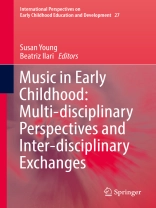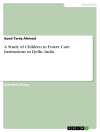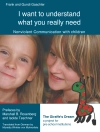This book examines four main areas of music in early childhood: the traditions of music for young children, their capacities for music, the way they make music with others, and constructed and mediated musical childhoods. It studies several themes in detail, including music making in the home and family life, various musical experiences in schools, day cares, and the community at large in several locations around the globe. It looks at technology and diverse musical repertoires, as well as innovative pedagogies, children’s agency, and brain research. Expanding on the knowledge bases on which early childhood music education typically draws, the book brings together contributions from a range of authors from diverse fields such as education, psychology, sociology, cultural studies, anthropology, philosophy, ethnomusicology, and the neurosciences. The end result is a volume that offers a broad and contemporary picture of music in early childhood.
表中的内容
1 Introduction; Susan Young and Beatriz Ilari.- Part I: Children Making Music with Others .- 2 Singing and Playing with Friends: Musical Identities and Peer Cultures in Early Years Settings; Amanda Niland.- 3 Probing the Dynamics of Sibling Interactions in Relation to Musical Development; Lisa Huisman Koops and Christa R. Kuebel.- 4 The Art of Listening: Infants and Toddlers in Education and Care Group Settings; Berenice Nyland.- Part II: Young Children’s Capacities for Music .- 5 The Social Meaning of Shared Musical Experiences in Infancy and Early Childhood; Gaye Soley.- 6 Embodiment in Early Childhood Music Education; Luc Nijs and Melissa Bremmer.- 7 Spontaneous Singing and Musical Agency in the Everyday Home Lives of Three- and Four-year-old Children; Bronya Dean.- 8 Neuromusical Research and Young Children: Harmonious Relationship or Discordant Notes?; Beatriz Ilari and Eun Cho.- Part III: Music for Young Children: Traditions .- 9 Sustaining Musical Traditions in Early Childhood: A View From the Field of Ethnomusicology; Andrea Emberly.- 10 Interculturalism in Early Childhood Music Education and the Training of Educators: An Anthropological Framework from the Mediterranean; Avra Pieridou Skoutella.- 11 Self-initiated Musicking in Kindergarten as Instances of Emancipation: The Case of Arabic Speaking Young Children in Israel; Claudia Gluschankof.- 12 World Music Pedagogy in Early Schooling: Issues of Implementation; J. Christopher Roberts.- Part IV: Constructed and Mediated Musical Childhoods .- 13 Re-thinking systems of meaning-making: A possible theoretical framework for exploring children’s engagement in music and the subject positions of ‘rock-boys’ and ‘pop-girls’; Ingeborg Lunde Vestad.- 14 The Kindie Movement: Independent Children’s Music in the United States Since 2000; Tyler Bickford.- 15 Music at Their Finger-tips: Musical Experiences via Touchscreen Technologies in the Everyday Home Lives of Young Children; Susan Young and Yen-Ting Wu.- 16 Improvisation and/or Music Education: A Child’s Upsetting Clarity; Panagiotis A. Kanellopoulos.- Afterword; Beatriz Ilari and Susan Young.












